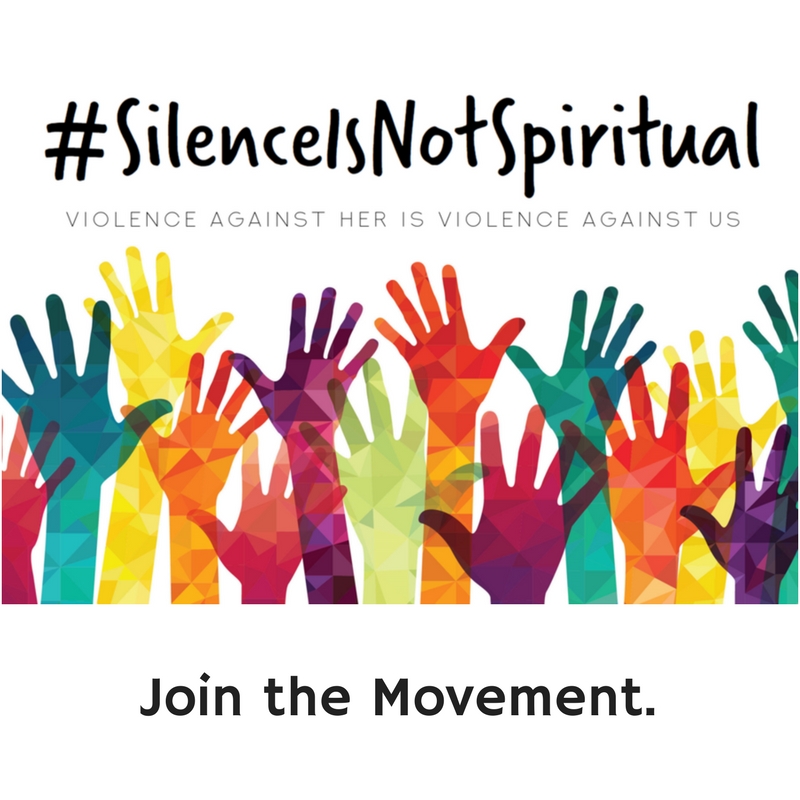
https://www.pexels.com/photo/tin-can-on-gravel-surface-1003103/
Last week’s Lean In post, “Seek and Speak Your Truth,” raised the subject of spiritual abuse on leadership teams in churches and Christian organizations.
When spiritual abuse happens, the kind of open honest communication Sheryl Sandberg advocates becomes risky or, even worse—impossible.
Women who have been subjected to spiritual abuse know this consequence is just the tip of the iceberg of the damage that occurs when Christian leaders abuse their powers and privilege (sometimes from the pulpit) to intimidate, manipulate, and bully others. When this happens publicly and goes unchecked, it gives implicit permission for the same kind of behavior to go on behind closed doors and in private homes.
Like an IED (Improvised Explosive Device), spiritual abuse does damage in all directions. The perpetrator gets away with practicing soul-destroying conduct that is antithetical to what it means to be a Christian and that inevitably undermines their own ministry. Likewise, the wounds inflicted by spiritual abuse are deep and hard to heal. The toll this takes on the abused person can be spiritually and emotionally devastating and, in some cases, lasts a lifetime.
We get all worked up (as well we should) about bullying that takes place among school children. But are we as outraged about the bullying that is inflicted under the guise of spirituality by Christian leaders within our ranks?
In last week’s post, I labeled this as a can of worms that needs to be opened. Women are frequent targets of spiritual abuse. Sadly, this is not a female-only issue. Children and men also suffer spiritual abuse. Yet if we don’t speak up, we become part of a problem that has no place in any community that professes to follow Jesus.
The seriousness of the problem cannot be overstated.
Case in point is the response of Christian leaders to the current scandal involving Sovereign Grace Ministries and a lawsuit accusing C.J. Mahaney and others in his ministry of covering up the sexual abuse of children. When the judge “dismissed the lawsuit ruling that nine of 11 plaintiffs waited too long to sue under the statute of limitations,” colleagues of Mahaney’s at The Gospel Coalition and Together for the Gospel “broke their silence” and spoke out in defense of their friend.
This understandably created a blogosphere uproar, including a withering critique from attorney Boz Tchividjian, Where Are The Voices? The Continuing Culture of Silence and Protection in American Evangelicalism.
Huffington Post carried the story here.
No one is questioning the importance of steadfast friendship. A friend should be first in line to come alongside someone who’s in trouble—not blindly to defend, but with love and honesty to challenge and call their friend to respond with truth and integrity. In the case of Mahaney’s friends, one hopes that’s exactly what happened.
But actions speak louder than words. And the actions of Mahaney’s friends have been loud and sent a dangerous message to their constituency. By continuing to give Mahaney a public platform at their conferences and featuring him on their websites instead of asking him to maintain a low profile while the lawsuit was underway, they missed a huge opportunity to demonstrate how seriously they take abuse of any kind, whether their friend is innocent or not. As a result they failed their friend and the Christian community as well.
In the few days between last week’s post and this one, I’ve heard more disturbing stories about spiritual abuse in the workplace. There’s even an example in last week’s comments of a woman pastor who spoke up when she was bullied by a fellow male staff member. Instead of confronting the question of bullying, another male staff member warned her not to “allow Satan to get a foothold”—thus multiplying the spiritual abuse.
The reprimand hit its mark. She was silenced, and the bully was protected.
Some of the patterns I’m observing are:
- Exploitation of the power disparity between the abuser and the abused
- The use of scripture or spiritual platitudes to manipulate, control, silence, and shame
- Demanding unquestioned loyalty
- Misperceptions of female submission and godliness exacerbate the problem
- Dismissal of legitimate concerns
- Blaming the abused for what someone else (often the abuser) has done
- An environment where simply speaking up or voicing a point of disagreement causes disapproval and possible dismissal
- The impact of abuse intensifies if a person has experienced abuse in the past
Two things surprise me.
First, it is often the case that neither the abuser nor the abused fully realize “spiritual abuse” is happening. This is why it is important for us to keep putting this subject under the spotlight—for the sake of both parties.
Second, that spiritual abuse happens in both complementarian and egalitarian contexts. In fact, two of the situations I heard about this week were happening to ordained women serving on the pastoral teams of churches.
 Since I’m not an expert on the subject, I turned to psychologist Dr. Phil Monroe, Professor of Counseling and Psychology and Director of the Global Trauma Recovery Institute at Biblical Theological Seminary in Pennsylvania. (My husband Frank becomes Biblical’s fourth president on July 1.)
Since I’m not an expert on the subject, I turned to psychologist Dr. Phil Monroe, Professor of Counseling and Psychology and Director of the Global Trauma Recovery Institute at Biblical Theological Seminary in Pennsylvania. (My husband Frank becomes Biblical’s fourth president on July 1.)
Dr. Monroe was a contributor to Rachel Held Evans’ series on abuse with his post, “Proper Treatment for Sexual Abuse: 7 Questions to Consider.”
His website (http://wisecounsel.wordpress.com/) is a valuable resource worth exploring.
On short notice and with a busy schedule, Dr. Monroe graciously wrote a post on the subject: “Spiritual Abuse: What It Is and Why It Hurts.” In it he offers this definition:
“Spiritual abuse is the use of faith, belief, and/or religious practices to coerce, control, or damage another for a purpose beyond the victim’s well-being.”
He also references an article by Mary DeMuth, another expert on the subject of abuse.
What can we do to address spiritual abuse by Christians in the workplace and in other contexts? What can we do to prevent and also detect spiritual abuse in churches, Christian organizations, and in homes? Have you seen (or experienced) situations where this kind of abuse has been addressed in healthy, redemptive ways? If yes, how? and if no, why?
If you have other resources you’d recommend, please feel free to post them here. And if your comments contain questions for Dr. Monroe or Mary, I’ll make sure they see them.
Here is the complete series on Spiritual Abuse:
- It all started with Lean In: Seek and Speak Your Truth
- Part 1: This Can of Worms Must be Opened!
- Part 2: The Perfect Storm
- Part 3: The Many Faces of Spiritual Abuse
- Part 4: Identifying the Triggers of Spiritual Abuse
- Part 5: Standing Up to Spiritual Abusers
- Part 6: The Underlying Belief System of Spiritual Abuse
- Part 7: The Enablers of Spiritual Abuse … or When Silence isn’t Golden
Dr. Phil Monroe on Spiritual Abuse:
- Spiritual Abuse: What it is and Why it Hurts
- Why Do Some Spiritual Leaders Abuse Power?
- What Factors Support the Use of Spiritual Abuse?
- Four Belief System That Support Spiritual Abuse
- Do You Enable Spiritual Abuse?
- Failures to Act—Why we don’t always blow the whistle on abuse
Also by Frank A. James: Structural Patriarchy’s Dilemma for Women
Mary DeMuth: Spiritual Abuse: 10 Ways to Spot It
Rachel Held Evans: Series on Abuse















Thanks for talking about this! I was spiritually abused by a boy I went to a Christain school with in high school. I was very fortunate to have parents who did not try to teach me to submit to men and thus I had a feeling that what was happening was wrong, but it took me a long time to confront and break free from the barrage of versus and supposed spiritual “leadership” that were being leveraged to shame and control me. In hindsight, I think not having the language to call it out hindered me and even the responsible adults in my life from recognizing it immediately for what it was. Talking and teaching about the mere fact that spiritual abuse exists could really help a lot of loving people out there in the church who simply are not equipped to see spiritual abuse for what it is. (Even though I wish I had been able to stand up against how I was treated sooner, I should make a point of emphasizing I don't blame myself for what happened- I just think the more equipped we are to recognize this misuse of scripture the better. )
LikeLike
Pingback: The Perfect Storm | Carolyn Custis James
Pingback: From Angst to Action—Preventing Spiritual Abuse | Carolyn Custis James
Pingback: The Enablers of Spiritual Abuse … or when silence isn’t golden | Carolyn Custis James
Pingback: Structural Patriarchy’s Dilemma for Women | Carolyn Custis James
Pingback: The Underlying Belief System of Spiritual Abuse | Carolyn Custis James
Pingback: Standing Up to Spiritual Abusers | Carolyn Custis James
Pingback: Lean In: Let’s Start Talking About It | Carolyn Custis James
Pingback: Identifying the Triggers of Spiritual Abuse | Carolyn Custis James
Pingback: The Many Faces of Spiritual Abuse | Carolyn Custis James
Pingback: Dis-abling spiritual abuse